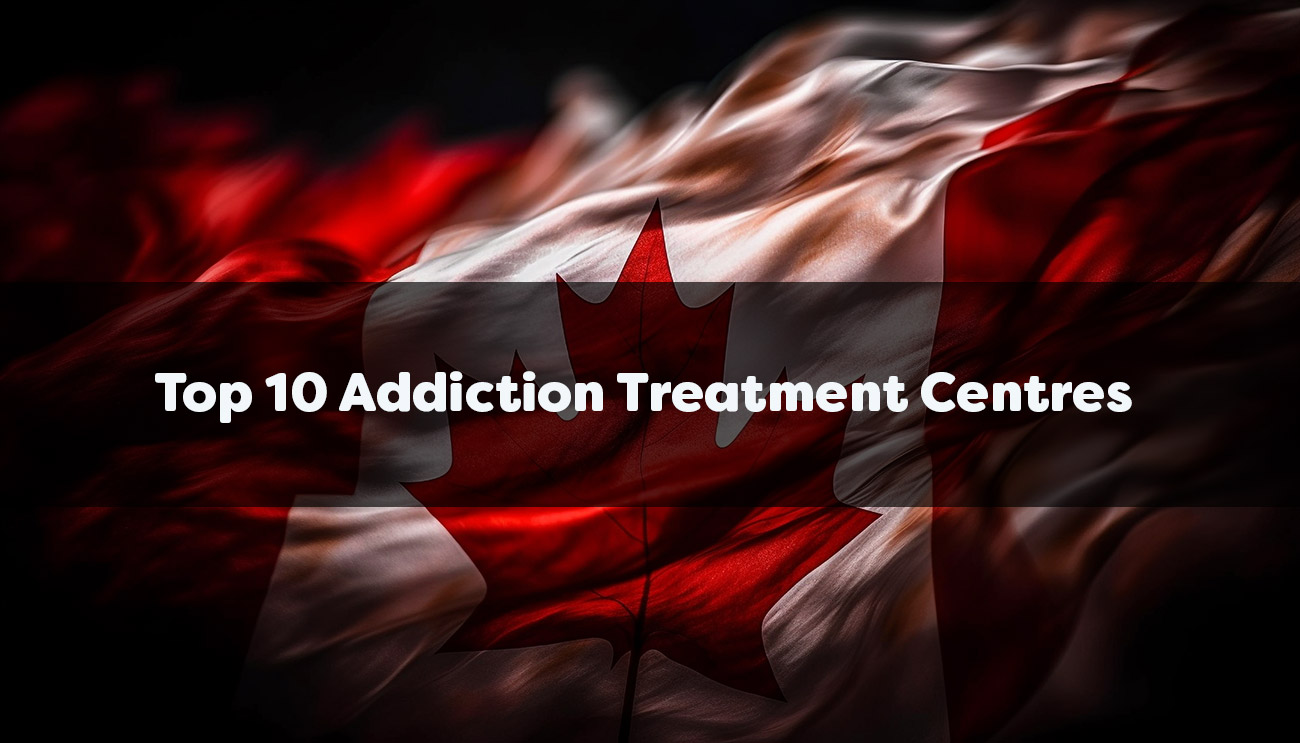
Deciding to get help for drug or alcohol addiction isn’t just a big step—it’s life-changing. Canada, like many countries, faces significant challenges with substance abuse, impacting thousands of individuals and families every year. The search for a suitable treatment centre can feel overwhelming, particularly with so many options promising the world. How can you know which centre genuinely offers effective treatment and compassionate care? It’s crucial to understand the various factors involved, such as the types of treatment available, the quality and credentials of staff, and how well the treatment fits your personal circumstances.
In this guide, we’ll walk you through everything you need to know about drug and alcohol treatment centres in Canada. You’ll gain clarity on different types of programs, learn how to evaluate their quality, and discover what makes a treatment centre truly stand out—arming you with the knowledge you need to make an informed choice that can ultimately save lives.
Why Seeking Treatment is Crucial
When addiction takes hold, it doesn’t just affect physical health—it disrupts every part of your life, from mental well-being to relationships, work, and personal aspirations. According to the Canadian Mental Health Association, substance abuse disorders significantly increase the risk of mental health issues like anxiety and depression, compounding the problem and making recovery more complex. Addiction isn’t something that can be fixed by sheer willpower or good intentions alone; it’s a chronic disease that alters brain chemistry and requires professional treatment to manage effectively.
Professionally supervised treatment programs significantly improve the chances of successful recovery. Treatment centres offer structured programs that address not just the symptoms but also the underlying causes of addiction. They provide essential tools to cope with triggers, stress, and cravings, reducing the likelihood of relapse. Moreover, these centres often integrate various therapy approaches, including cognitive-behavioural therapy (CBT), group therapy, individual counselling, and holistic treatments, creating a comprehensive support system that encourages sustained sobriety.
Seeking treatment early is especially vital. Addiction is progressive; left untreated, it escalates, making recovery increasingly challenging. Professional treatment helps arrest this progression by providing detoxification, medical supervision, and emotional support right from the onset. Treatment centres are also instrumental in reconnecting individuals with their families and communities, facilitating healing and rebuilding fractured relationships.
Furthermore, treatment provides education and resources not only to individuals struggling with addiction but also to their families. Many centres incorporate family therapy into their programs, acknowledging that family support is crucial in sustaining long-term recovery. In Canada, programs like those at Metamorphosis Centre offer specialized treatments designed to strengthen family dynamics and ensure the recovering individual’s environment at home remains supportive and conducive to lasting sobriety.
Recovery from addiction is an ongoing journey rather than a one-time event. Treatment centres prepare individuals for life beyond immediate sobriety, equipping them with strategies and resources for long-term relapse prevention. Without professional support, individuals often find themselves stuck in a cycle of relapse and recovery, making long-term sobriety seem unattainable. Effective treatment interrupts this cycle by promoting personal accountability, self-awareness, and the building of healthier habits.
Key Takeaways:
•Addiction treatment is essential due to the profound physical, mental, and social impacts of addiction.
•Professional treatment significantly boosts recovery success rates by addressing underlying causes and equipping individuals with coping strategies.
•Early intervention and family involvement enhance long-term recovery outcomes.
Types of Drug and Alcohol Treatment Programs
Canada offers a diverse range of treatment options to suit various needs, lifestyles, and addiction severities. Understanding the differences between these options is crucial for selecting the best fit for your personal situation.
Inpatient Treatment Centres
Inpatient treatment programs, also known as residential programs, offer comprehensive, 24-hour care within a structured facility. Participants reside at the centre for the duration of the treatment, typically ranging from 30 to 90 days or more. This type of treatment is particularly beneficial for individuals with severe addictions, co-occurring mental health conditions, or a history of relapse.
The primary advantage of inpatient care lies in its immersive environment. Patients receive constant supervision, medical assistance, therapy sessions, and support group interactions. Centres like the highly-rated Metamorphosis Centre in Canada provide evidence-based treatments including individual counselling, group therapy, and holistic methods such as mindfulness meditation and yoga. This environment removes everyday triggers and distractions, allowing individuals to fully focus on their recovery.
However, inpatient programs come with their own set of challenges. They require significant time commitments and can be costlier due to accommodation and extensive medical services. Additionally, individuals may need to arrange for work leave or childcare. Nevertheless, the success rates for inpatient programs are notably higher because of their comprehensive approach and immersive support structure.
Outpatient Programs
Outpatient treatment is ideal for individuals with mild to moderate substance use disorders or those transitioning from inpatient care back into their daily lives. These programs offer flexibility, allowing individuals to attend scheduled therapy sessions while living at home and maintaining regular responsibilities, such as work, school, or family commitments.
Outpatient care typically involves weekly or bi-weekly group and individual therapy sessions. Programs such as Intensive Outpatient Programs (IOPs) provide a higher level of care, with multiple sessions each week. This approach is cost-effective and allows participants to directly apply coping skills learned in therapy to real-world scenarios, fostering independence and accountability.
However, outpatient care isn’t suitable for everyone. Individuals dealing with severe addictions or who lack stable, supportive home environments may find outpatient programs insufficient. There’s also a higher risk of relapse due to continued exposure to triggers and temptations in daily life. It’s crucial to realistically assess your personal situation before choosing outpatient care.
Detoxification Centres
Detoxification, or detox, is usually the first step in addiction treatment. Detox centres provide medically supervised withdrawal management, ensuring the safe elimination of drugs or alcohol from the body. Detox typically lasts from a few days to several weeks, depending on the severity of the addiction and the substances involved.
There are two primary detox approaches: medical and holistic. Medical detox employs medication to manage withdrawal symptoms, which can be severe or even life-threatening without proper supervision. Holistic detox incorporates natural methods such as nutritional support, herbal supplements, acupuncture, and mindfulness practices to help ease withdrawal symptoms and reduce stress.
Although detox is a vital first step, it should never be viewed as a standalone treatment. Effective long-term recovery requires follow-up with either inpatient or outpatient programs. Detox alone does not address the psychological, social, and emotional factors driving addiction, which are crucial to sustained sobriety.
Key Takeaways:
•Inpatient programs offer comprehensive, structured support ideal for severe addictions.
•Outpatient programs provide flexibility for individuals balancing treatment with daily responsibilities.
•Detox is a necessary initial step but must be combined with comprehensive treatment for lasting recovery.
Top 10 Addiction Treatment Centres in Canada (2025)
Based on the information from Google.ca, here is a list of top addiction treatment centers in Canada:
1. Metamorphosis Centre for Change
Located in Wasaga Beach, Ontario, Metamorphosis Centre for Change offers a resort-style environment emphasizing holistic healing and community support. Their programs include inpatient, virtual inpatient (VIOP), and outpatient services, tailored to individual needs. The center provides private medical detox, family support programs, and lifetime aftercare. Clients can enjoy amenities like beach access, swimming, yoga, and a gym. According to their website, they have a 91% program completion rate and a 96% client satisfaction rate.
2. Canadian Centre for Addictions
Situated in Cobourg, Ontario, the Canadian Centre for Addictions offers a serene, 5-star setting for individuals recovering from substance use and mental health issues. Their comprehensive programs include detox, inpatient, and outpatient care, with a focus on individualized treatment plans. The center boasts a 95% success rate and provides amenities such as private rooms and recreational activities. According to Google.ca, they have a Google review rating of 4.6 based on 139 reviews.
3. Last Door Recovery Centre
Located in New Westminster, British Columbia, Last Door Recovery Centre offers addiction recovery services for youth and adult males aged 13-30. Utilizing the Recovery Capital approach, their programs address substance use and co-occurring mental health disorders. The center emphasizes community integration and peer support, providing a supportive environment for long-term recovery. According to Google.ca, they have a Google review rating of 4.5 based on 130 reviews.
4. Aurora Recovery Centre
Based in Gimli, Manitoba, Aurora Recovery Centre is a premier facility offering comprehensive addiction treatment services. Their programs include individualized treatment plans, medical detox, and continuing care services. The center provides a holistic approach to recovery, incorporating evidence-based therapies and wellness activities. According to Google.ca, they have a Google review rating of 4.3 based on 60 reviews.
5. Orchard Recovery Center
Situated on Bowen Island, British Columbia, Orchard Recovery Center is a private inpatient facility offering comprehensive drug and alcohol addiction treatment. Their programs include detoxification, stabilization, and flexible lengths of stay, starting with a 12-day introduction to treatment. The center emphasizes holistic healing, incorporating various therapeutic modalities and recreational activities. According to Google.ca, they have a Google review rating of 4.7 based on 50 reviews.
6. Homewood Health Centre
Located in Guelph, Ontario, Homewood Health Centre is one of Canada’s largest mental health and addiction facilities. Fully accredited and physician-led, the center offers specialized programs and extensive services to treat a wide range of mental health issues, including trauma, addiction, anxiety, depression, and co-occurring conditions. With over 140 years of experience, Homewood is a national resource for comprehensive mental health treatment. According to Google.ca, they have a Google review rating of 4.0 based on 100 reviews.
7. Sunshine Coast Health Centre
Based in Powell River, British Columbia, Sunshine Coast Health Centre is a private, men-only residential facility offering non-12-Step treatment for mental health, addiction, operational and occupational stress, and trauma disorders. The center provides 24-hour medical care, psychiatry, psychology, nutrition and fitness support, and specialized bodywork. Their approach focuses on holistic healing and long-term recovery. According to Google.ca, they have a Google review rating of 4.8 based on 45 reviews.
8. Edgewood Treatment Centre
Located in Nanaimo, British Columbia, Edgewood Treatment Centre is a leading facility offering comprehensive treatment for substance use and mental health disorders. Their programs include inpatient and outpatient services, with a focus on individualized care plans. The center provides a range of therapeutic modalities, including cognitive-behavioral therapy and trauma-informed care. According to Google.ca, they have a Google review rating of 4.2 based on 80 reviews.
9. Bellwood Health Services
Situated in Toronto, Ontario, Bellwood Health Services offers comprehensive treatment programs for substance use and related mental health disorders. Their evidence-based approach includes medical detox, inpatient rehabilitation, and outpatient services. The center emphasizes holistic care, incorporating physical health, mental well-being, and social support into their programs. According to Google.ca, they have a Google review rating of 4.1 based on 70 reviews.
10. Renascent
Based in Toronto, Ontario, Renascent is a leading addiction treatment center offering inpatient and outpatient programs for individuals struggling with substance use disorders. Their comprehensive approach includes medical detox, individual and group therapy, and aftercare support. The center focuses on holistic healing, addressing physical, emotional, and spiritual aspects of recovery. According to Google.ca, they have a Google review rating of 4.4 based on 60 reviews.
Conclusion
Choosing the right addiction treatment centre is crucial for successful and lasting recovery. The centres listed above represent some of the finest facilities in Canada, each offering specialized, evidence-based programs in compassionate and supportive environments. Metamorphosis Centre for Change stands out for its personalized approach and high success rate, making it an ideal first choice. Remember, overcoming addiction is a deeply personal journey—selecting a centre aligned with your specific needs, values, and preferences will significantly enhance your chances of long-term recovery and wellness.
Frequently Asked Questions (FAQ)
Q1: How do I choose the best addiction treatment centre?
A: Look for a facility offering personalized treatment plans, a strong reputation, positive reviews, and comprehensive support services. Consider factors such as program length, treatment approaches (e.g., holistic, 12-step), amenities, and location.
Q2: Does insurance cover addiction treatment in Canada?
A: Many private insurance plans cover addiction treatment. Coverage varies depending on the insurer and the specific treatment centre. Contact your insurance provider and the centre directly to confirm coverage details.
Q3: How long does addiction treatment typically last?
A: Treatment lengths vary from short-term detox programs (7-14 days) to residential programs lasting 30, 60, 90 days or longer. Ongoing outpatient support can continue for months or even years, depending on individual needs.
Q4: Are family members allowed to be involved during treatment?
A: Most centres encourage family participation, offering family therapy sessions and educational programs to help families understand addiction and support their loved ones throughout recovery.
Q5: What is holistic addiction treatment?
A: Holistic treatment addresses the whole person—mind, body, and spirit—using therapies such as yoga, meditation, nutrition, fitness, and various complementary methods alongside traditional counseling and medical interventions.
Q6: What happens after addiction treatment?
A: After completing treatment, individuals typically receive ongoing support through aftercare programs, alumni groups, and outpatient counseling to help maintain sobriety and prevent relapse.




